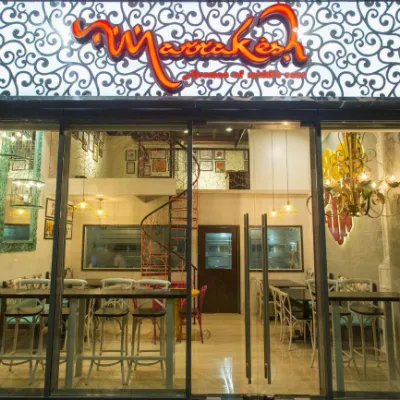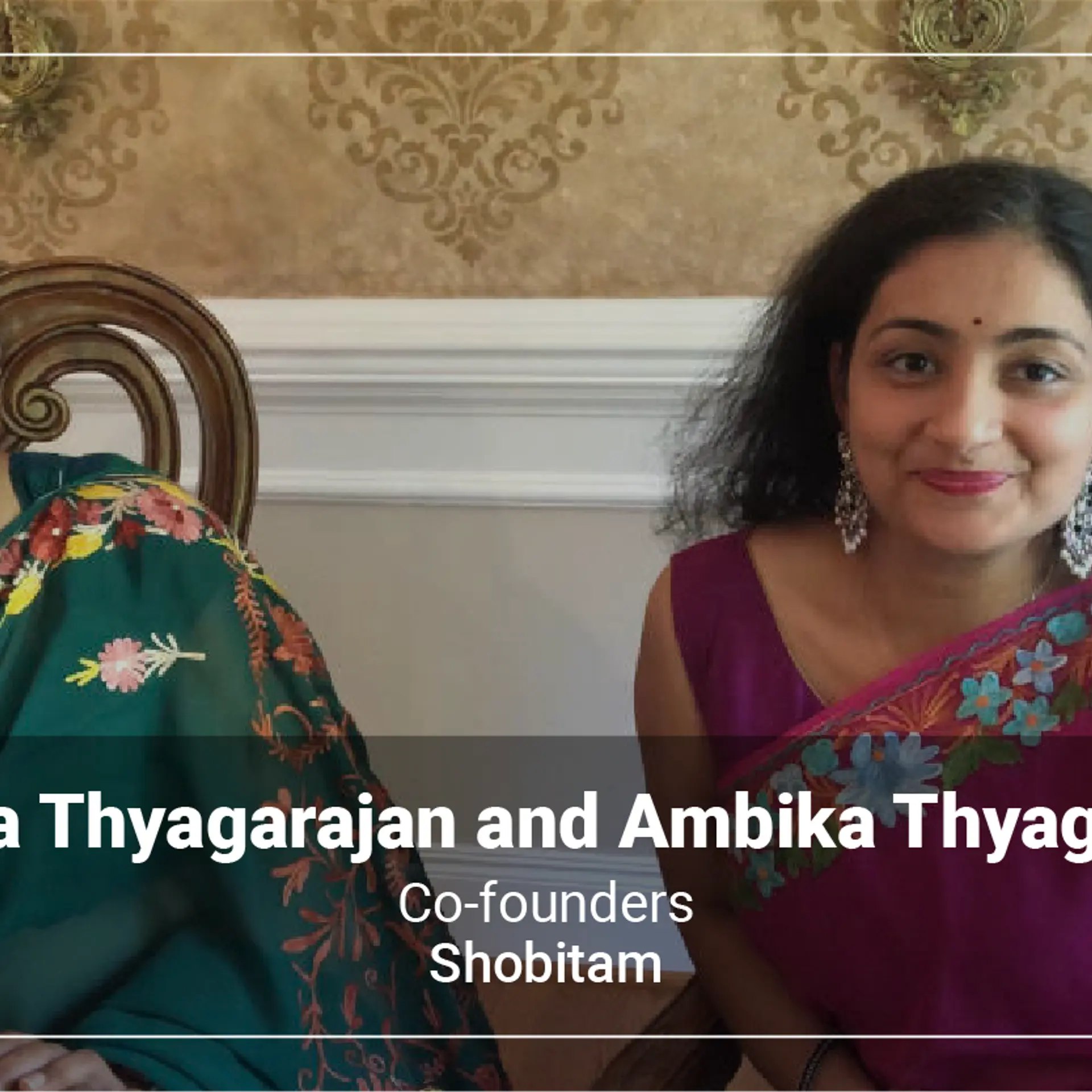Craving a complete shawarma experience? Gaurav Gite and his cafe Marrakesh are here to satisfy your tastebuds
When you enter a shawarma joint, the first thing you notice is the stack of seasoned, sliced meat on a vertical rotisserie or skewer. It is spinning on its axis, being slow cooked by the flames crawling out from the grill behind it. As you move closer, you feel the warmth on your face.
All at once, you are sucker-punched by the intense aroma of pepper, paprika, cinnamon, turmeric, garlic, and a few other spices. You then hear clanking as the chef sharpens his long, sharp knives and proceeds to cut shavings of meat off the rotating stack.
All of this, and you haven’t even begun to eat. Now, the chef is wrapping the meat in a flatbread (or pita) along with finely-chopped tomatoes, cucumbers, onions, and other pickled vegetables. The shawarma you’ve been craving is almost ready. What’s it going to taste like? Will it be extra juicy or extra spicy?
As you fantasise about the food, you realise it is somebody else’s order. But you’re fine with experiencing the sensory overload all over again, because that’s what street food is all about.
This is the rich culinary experience 34-year-old entrepreneur Gaurav Gite has brought to Pune. Marrakesh, his Lebanese cafe chain, was launched in 2007, and specialises in treating customers to the complete shawarma experience.
The cafe chain needed Rs 40 lakh to startup, and Gaurav’s mother broke into her savings and invested in her son’s venture. The move proved successful and Marrakesh expanded rapidly. It now has 16 outlets in Pune and serves over one lakh shawarmas every month.
In an exclusive interaction with SMBStory, Gaurav Gite, Founder, Marrakesh, narrates how his days in Goa inspired him to start a shawarma business and how he is currently running it.
SMBStory: How did your journey with food begin?
Gaurav Gite: I was a hotel management student in Goa, and here I learnt how a hobby and passion for food can translate into a full-time profession. I used to regularly visit a small shawarma kiosk called Anjuna. There was another shawarma place in Mapusa, but it was 10 kilometres away. The distance didn’t stop me and I frequented the joint.
With all my shawarma trips, I realised the Middle-eastern delicacy was the fastest and easiest go-to snack, which would blend well with the Indian palate. That is how my culinary journey started with IHM Goa. This was back in 2003, and it was completely different from today’s commercial Goa.
SMBStory: How did your culinary studies translate into a business idea?
GG: After Goa, I did my post graduation from New Plymouth, New Zealand, from an institute known as Pacific International Management School. I landed my first job as a bartender because I didn’t get a job in the culinary side. I used to work a full shift in the bar and then sit in the kitchen for no particular reason. Though I had all the degrees, the city functioned in a different way.
One day, the chef walked up to me and told me there was a vacancy, and asked me whether I wanted to join. My professional journey as a chef started then. I worked hard in the kitchen for 18 hours a day and just wanted to learn. Here, I spent a year and a half, and then returned to India.
When I was in India, initially I had no idea what to do in life. When I studied in Goa and New Zealand, I felt laid back and relaxed. But in Mumbai, the fast-paced life and traffic got to me and eventually brought me to Pune. I came to the city for a vacation and fell in love with it, and I told myself that I’d use my culinary skills to open up a food stall there.
SMBS: How did you fund this dream?
GG: My business was self-funded and my mother pitched in a big way. I launched Marrakesh in 2007, and once we had more outlets, we invested our profits back into the business. It was like a startup, but at that time there was no startup culture. We believed that we were a startup in our own sense, and whatever we earned, we pushed it back into the business.
We also explored the franchise model. Although the company was always self-funded, we did have debts from the bank. We were always very cautious about fundraising as we never wanted to get into the burden of investors’ money. We didn’t know whether we’d benefit from external funding because we were still learning.

A Marrakesh outlet in Pune
SMBS: What were the initial days like in your business?
GG: Once I knew I wanted to start a food business, I recalled how Turkish rolls and shawarmas were available globally. This automatically translated into something which could be eaten at any point of time. All that was needed was an instant licence.
I moved to Pune, got my own place, and hired 14 people. My first income of six months was Rs 44,000, and I split it among the employees. Today, I pay them salaries worth a collective Rs 32 lakhs per month.
The initial days were very difficult because I was only 22 and I was working with people who were twice my age. Those days, India was not very open to new kinds of food, and this reflected on the employees. I had to move three steps backwards to understand things.
As a young man, I had no other responsibilities. I used to sleep in the restaurant, work with the employees, and eat at the same table as them. I made them an integral part of the family, and so did they. I have always believed that India is a very beautiful market, and if you play on the right emotions, they will shower you with love for the rest of your life. I was never an owner to my staff. I was one of them, and did the same amount of work they did, right from cleaning to sweeping.
To begin with, I would start my day by 8:45 am. I used to be the first person there, light a diya, and wait for the business to start. Back in the day, there were no digital and social media channels. The only thing we had were our operations and our food.
SMBS: What is Marrakesh’s current scenario?
GG: We have grown over the past 10 years. When we first started back in 2007, we used to sell 14 shawarmas a day in Pune with one outlet, and today we have 16 outlets. Back in the day, Kalyani Nagar was not the same as it is today. We sold shawarmas for Rs 85, but the city was used to similar snacks at Rs 30 or Rs 40 from other joints. Being the new boy in town and serving the same thing for double the amount was surely very challenging. But people liked what we were doing, and we quickly grew to selling one lakh shawarmas per month. We also set up a cafe which had a liquor licence.
As our price points started making more sense to the consumers, the brand started penetrating into households. We have people from all walks of life coming in and grabbing a bite. We were never the uber-luxury brand, and we had everything for everyone. Under this model, we opened 26 outlets on the whole. Some shut, some worked, and some soared. But we understood and learnt about our mistakes.
SMBS: What have you learnt from your entrepreneurial journey?
GG: In India, there are a lot of challenges one has to face. I came in as a chef, and then realised I needed the qualities of an entrepreneur. You might be a great chef and know your food, but you must also have an entrepreneurial ability. It is all about taking risks. Risk-taking is something every business guy must have.
At times, business skills may exist, but the patience to pursue goals may not. My goal was never to open so many outlets. It was to stay where I was, not to fail each day, and slowly move ahead. But I had a lot of challenges that came my way. I had cops come over, faced encroachment problems, and learned the hard way that people reciprocate humility and kindness.
But the learning has not stopped. I am a strong believer that brands are not built overnight and even seven or more years is too short a time. I would like to give myself more time to open outlets in different states and also go international. I want to study and observe different markets and see what they have in store for us. We are looking at several ways to go forward. We are also looking at equity and venture capitalists coming in and sharing our vision.
With inputs from Ayesha Roy







